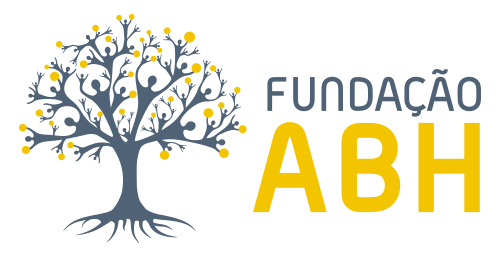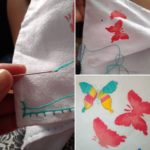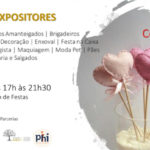
- Home
- Who we are
- Initiatives
- 2023
- 2022
- 2021
- 2020
- 2019
- Acreditar
- Capão’s Citizen Association
- CENEP
- ClareArt Association
- Dreaming Project Institute
- Interference
- Nursery Walk With Love is the Solution
- Organic Outskirts
- Panthers’ Productions Collective
- Sementinha Project (Little Seed) – Year 5
- Stitch to Stitch Collective
- The Story Finders Collective
- Untangle and Don’t Fool Me Collective
- 2018
- 2017
- 2016
- 2015
- 2014
- Partners
- Network and Territory
- Transparency
- Publications
- Make a donation!
Stitch to Stitch Collective
2019The Initiative
Who We Are
Stitch to Stitch Collective (Coletivo Ponto a Ponto) is a social business that emerged in 2018 from two women’s need to supplement their family income. Benefiting from their manual skills in cutting and sewing, and aside from the health problems they faced, the residents of Chácara Santa Maria, on the southern suburbs of São Paulo joined forces and knowledge to develop products, win customers and bring others to grow together. The collective produces and sells layettes, decorations and presents to the final consumer.
District
Capão Redondo
The Proposal
An initiative that will produce handmade pieces together with other artisans will help people who want to learn the techniques of cutting and sewing and start their own businesses. The project aims to organize and strengthen the business that has just started.
The support of this guidebook will allow the expansion from 4 to 12 people working in the collective, producing and marketing the pieces. It will also allow the structuring of a headquarters with equipment, furniture, and wholesale materials to produce the pieces, whose outcome will be a reduction of up to 60% in current production costs.
The increase in the number of members will raise rise the capacity to create new products, to seek new partnerships for higher volume sales, to participate in fairs and exhibitions for selling the products and for continuous training. All of those combined increases expertise among members.
Background
The neighborhood of Chácara Santa Maria and its regions has a high rate of domestic violence. Many women, by not generating their own income, don’t see an alternative than a recurrent dependency on their husbands. The collective rises as an alternative for women to seek a way of living by breaking the vicious cycle of low income, in addition to enabling empowerment, escaping the vulnerability zone and financial estate dependence or parental alienation. This region also lacks of formal job opportunities, so informal jobs is are one of the few options to get into the labor market without having to commute to work.
The project will affect people’s lives by providing the opportunity to learn either to set up their own business or to return to the job market. In addition to the workshops of embroidery, creative stitching, crocheting, paintings, soap making, weaving and MDF work, classes will also offer courses on how to be recognized as a legitimate entrepreneur, good practices for the organization of environments and practices of sustainability (for example, reuse of discarded products such as cooking oil).
How It Works
Under the collective’s coordinator supervision, each person will develop a product line according to his or her expertise. The output will be marketed at fairs and on an online collective platform. The income from the net sales will be distributed accordingly to the individual production and a percentage of this amount will be reverted to the collective’s invoice in order to form working capital.
Another activity offered will be craft classes as a way to generate more revenue and help in establishing its sustainability. The classes will be on free demand, by appointment, in groups of 4 people, with a weekly meeting of three hours each; this activity will also work as a part of the selection process for those who want to engage in the collective. The symbolic value of R$ 20.00 will be charged for the replacement of the raw material used, allowing the creation of a cash fund to assist people of very low income. In the classes, will be taught crafts’ techniques, sustainability, and personal organization. Three trainings sessions will be offered for 12 people during the project execution period, in a total of 12 classes for 4 people per quarter; and a collaborative sale at the 13th meeting.
Eight people will be selected during the craft classes by the criteria of necessity and vulnerability, in partnership with the Social Service and Health Agent of UBS Luar do Sertão.
The social business aims to promote sustainable and inclusive economic growth, full and productive employment, and decent work for all, stimulating social entrepreneurship with the ministration of courses to foster the growth of individuals in the community.
Project Audience

- People in situations of social vulnerability: 8 people directly and 40 indirectly. The direct recipients are residents of the neighborhood, users of UBS Luar do Sertão that will be addressed (or by free will – there will be an invitation banner on the UBS mural and CIC Valo Velho). The minimum age limit is 14 years, as it is necessary to use needles and scissors. The criterion is the commitment, so two unexcused absences in the classes will cause dismissal. A follow-up worksheet will be made, showing the evolution of each individual: if she/he sold pieces of her / his achievement or started / returned to the labor market.
- The family members of the participants will benefit indirectly from the income increase of the participants.
Objectives of the Investment
- Structure and strengthen the business.
- Offer craft classes as a way to generate more revenue.
- Create and maintain a fund to assist low-income students.
- Increase participants’ personal autonomy.
- Contribute to improving participants’ self-esteem.
- Improve the support network to strengthen the collective and its activities.
- Involve the community to be the protagonist of the collective’s improvements within the community.
- Increase the collective’s visibility and acknowledge inside and outside the territory.














